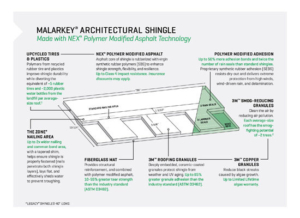The Production Steps for Class 4 Asphalt Shingles

Welcome to Davis Roofing Solutions, your trusted roofing experts in Fort Worth. In this comprehensive blog, we will take an in-depth look at the manufacturing process of Class 4 asphalt shingles. As a leading roofing company, we prioritize quality and durability, and Class 4 shingles exemplify these traits. By understanding the steps involved in their manufacturing, you can appreciate the superior performance and longevity these shingles offer.
Before we proceed, it’s important to note that Davis Roofing Solutions specializes in Class 4 asphalt shingle installations. Our experienced team combines industry expertise, top-notch materials, and advanced techniques to ensure your roof withstands the harshest weather conditions.
Step 1: Base Material Preparation:
The manufacturing process of Class 4 asphalt shingles begins with the preparation of the base material. Typically, a fiberglass mat is used as the base, as it offers excellent strength and durability. The fiberglass mat is coated with asphalt, which acts as a binder to hold the shingle together.
Step 2: Application of Asphalt Coating:
Once the fiberglass mat is prepared, it is fed into a machine where hot asphalt is applied in a precise and controlled manner. The asphalt coating ensures that the shingles are resistant to moisture and provides a strong adhesive for the mineral granules.
Step 3: Application of Mineral Granules:
After the asphalt coating is applied, mineral and polymer granules are immediately embedded onto the surface of the shingle. These granules serve multiple purposes, including enhancing the shingle’s appearance, protecting it from UV rays, and improving fire resistance. The mineral granules are available in various colors to provide aesthetic options for homeowners.
Step 4: Additional Coating and Sealant Application:
To enhance the shingle’s performance, an additional coating is applied on the back surface. This coating acts as a sealant, ensuring that the shingle adheres securely to the roof deck. This step plays a crucial role in protecting your roof from wind uplift and water infiltration.
Step 5: Cooling and Cutting:
Once the shingle is fully coated and granulated, it undergoes a cooling process to allow the asphalt and sealant to set. After cooling, the shingles are cut into the desired dimensions, typically in the form of rectangular or hexagonal shapes. This step ensures consistency in size and makes them ready for packaging and transportation.
Step 6: Quality Control and Testing:
Before the Class 4 asphalt shingles leave the manufacturing facility, they undergo rigorous quality control and testing procedures. These tests include evaluating the shingles’ resistance to impact, fire, and wind uplift. Only shingles that meet or exceed the Class 4 rating criteria are approved for distribution.
Step 7: Packaging and Distribution:
Once the shingles pass all quality tests, they are packaged and prepared for distribution. Special care is taken to ensure proper packaging to prevent damage during transportation. The shingles are then distributed to authorized suppliers and roofing contractors like Davis Roofing Solutions, who prioritize quality and offer Class 4 asphalt shingle installations to homeowners.
Conclusion:
Now that you have a comprehensive understanding of the manufacturing process of Class 4 asphalt shingles, you can appreciate the quality and durability they offer for your roofing needs. Davis Roofing Solutions is your trusted roofing partner in Fort Worth, specializing in Class 4 asphalt shingle installations. Visit Davis Roofing Solutions to learn more about our services and how we can provide you with a strong, long-lasting roof that protects your home for years to come.
Contact us today for a free consultation and experience the expertise and craftsmanship that sets Davis Roofing Solutions apart from the rest.




